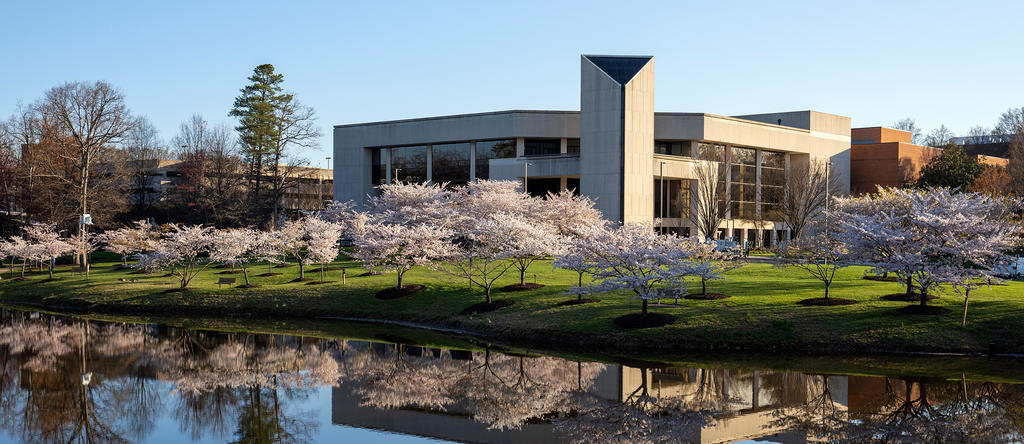Patriot Plan for Community Safety and Well-Being
The safety and well-being of all students, faculty, and staff is of paramount concern to George Mason University, especially in light of recent events.
We are further enhancing our already increased standards of protection and care to address safety and well-being concerns that are increasing across our university, while maintaining the rights, privacy, and dignity of all in our community. Our safety and well-being protocols meet or exceed the additional standards announced by the Biden Administration on October 30, as well as guidance from Virginia Gov. Glenn Youngkin on October 31.

University Statements
Faculty-led events, update on Patriot Plan for Safety
November 28, 2023
Denouncing Islamophobia
November 28, 2023
Message about Tuesday event on campus
November 15, 2023
Statement on President's Patriot Plan for Community Safety and Well-Being
November 2, 2023
World events, the First Amendment, and George Mason University
October 17, 2023
A message to Mason community regarding the unfolding war in Israel and Gaza
October 10, 2023
To that end, we offer the following comprehensive approach to violence awareness and prevention:
1. Enhanced Law Enforcement Presence
George Mason Police are increasing protection efforts for the entire University community, while also upholding federal and state laws regarding protests and constitutionally protected speech on public property. Police have increased their presence at gatherings, are providing additional security to high profile events focusing on the current crisis in the Middle East, and are engaging federal and state authorities as directed in recent days by President Biden and Governor Glenn Youngkin, including stepped-up coordination with the US departments of Homeland Security and Justice, the Commonwealth’s Attorney General, and local and state police agencies. In addition, you may see increased patrols and presence in high-traffic areas frequented by students.
White House and Commonwealth Statements
White House press briefing by Press Secretary Karine Jean-Pierre and NSC Coordinator for Strategic Communications John Kirby
October 30, 2023
Governor Glenn Youngkin Issues Executive Directive to Combat Antisemitism and Anti-Religious Bigotry in the Commonwealth and on Campuses
October 31, 2023
2. Enhanced Enforcement of Codes of Conduct
Standards of conduct guide all student, faculty, and staff behavior. They are observed and enforced at all times. That includes the George Mason Student Code of Conduct, the Instructional and Research Faculty Handbook, the Administrative and Professional Faculty Handbook, and the Classified Staff code set forth in the Virginia Department of Human Resource Management HR Policies. None of these permit threatening behavior, harassment, property destruction (which includes the removal and destruction of posters, memorials, banners, etc.), or disorderly conduct.
3. Complaint Reporting and Response Resource
George Mason's Violence Awareness and Prevention initiative provides comprehensive resources for preventing and responding to acts of violence in the workplace, including an online clearinghouse on reporting acts of violence and discrimination, including information and referral on:
- The university's permanent Threat Assessment Team
- Ways to report violence or threats of violence to police, anonymously, if preferred.
- Report possible violations of the Student Code of Conduct to the Office of Student Conduct.
- Mandatory reporting requirements of certain crimes pursuant to the Clery Act.
- File a report to the Equal Opportunity/Non-Discrimination unit about acts of possible prohibited discrimination, including that which is based on race, religion, national origin, disability, etc.
4. Compassionate Listening Sessions
University Life is now offering individual Compassionate Listening Sessions. These are in-person conversations with Mason staff members who can provide you with compassionate support through careful listening. This is not a therapeutic service and is not meant to replace therapy. This avenue provides participants with a private opportunity to be heard. If you are interested, please call University Life (703-993-2884) to schedule a support meeting.
5. Advocacy and Resources
Numerous support resources exist to help those in need as a result of experiencing violence, harassment, or other inappropriate behavior, including:
Student Supports
Faculty and Staff
6. Free Speech Guidance and Limitations
The university's commitment to the First Amendment rights of all community members is maintained in George Mason's Free Speech on Campus resource center, which includes a guide to limits of constitutional protections and the means to report disruptions of constitutionally protected speech. While the First Amendment allows for and protects hate speech, it doesn’t mean that we encourage it. We are at our best when we choose speech that makes our point without hateful rhetoric and language and we ask everyone in our community to engage vigorously but do so in a manner that is respectable to others. Guidelines on campus demonstrations, events, and gatherings, are available on our Campus Climate site.
7. Freedom and Learning
A hallmark of any worthy university is to teach about the world, and George Mason is actively encouraging faculty and students to find ways to teach, learn, and listen about the events unfolding with the Israel-Hamas conflict. Events are currently very raw and discussions about the most productive means to offer such opportunities are being explored cautiously and discreetly by various members of the George Mason community, and as public invitations to such encounters emerge, the George Mason community will be invited to participate.
Faculty-Led Campus and Streamed Events
- Israel-Palestine Conflict: Why are we in a war and how do we go for peace? - hosted by Carter School
November 29, 2023 - Watch the livestream
- Women and Children as Targets of War - hosted by Carter School
November 30, 2023 - Watch the livestream
- Hope Amidst Conflict: Book talk with Oded Adomi Lesham - hosted by Carter School
November 13, 2023 - Watch the book talk
- "Gaza in Context: A Collaborative Teach-In Series" - hosted by Middle East and Islamic Studies at Mason
Watch on Facebook
8. Training
George Mason offers a variety of training programs and materials to combat violence on campus on such topics as civility and violence prevention, bystander intervention, and active threat awareness and prevention.
